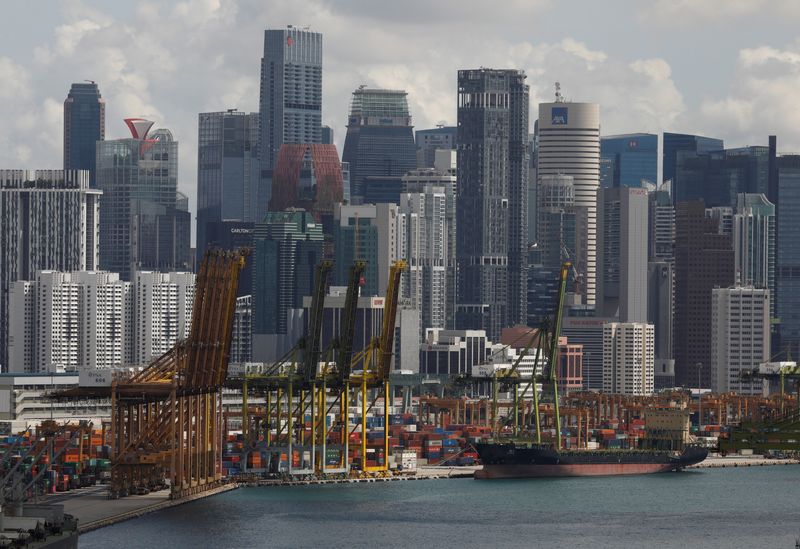SINGAPORE (Reuters) - Singapore's February headline prices rose at their fastest pace in nine years due to higher private transport costs, while core prices eased for the first time since June last year, official data showed on Wednesday.
Headline inflation rose by 4.3%, exceeding economists' median forecast of 4.2%, according to a statement from the Monetary Authority of Singapore (MAS).
The core inflation rate — the central bank's favoured price measure — rose to 2.2% in February on a year-on-year basis, down slightly from 2.4% in the previous month. A Reuters poll of economists had forecast a 2.5% increase.
Selena Ling, head of treasury research and strategy at OCBC, said she expected core prices to stay elevated in the first half of the year.
"We are seeing pricing pressure across a whole slew of different products and services. The tight labour market hasn't really fundamentally changed, so I think the pressure is still on MAS to tighten (interest rates) in April," she said.
The MAS tightened monetary policy in January this year, in its first out-of-cycle move in seven years, as global supply constraints and brisk economic demand elevated inflation pressures across the region.

The Singapore dollar fell marginally to S$1.3574 per dollar after the data was released.
The slight easing of core prices in February was due to lower inflation for services, food, electricity and gas, the MAS statement said.